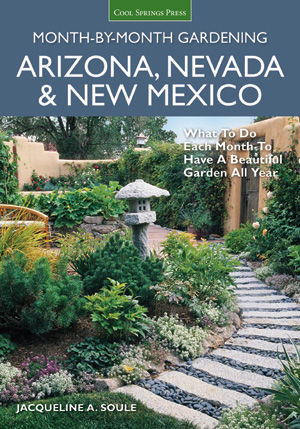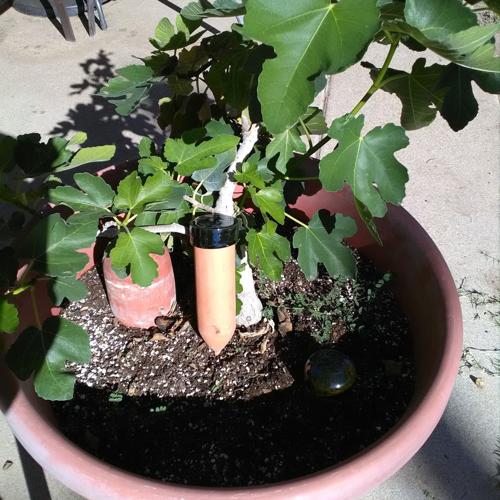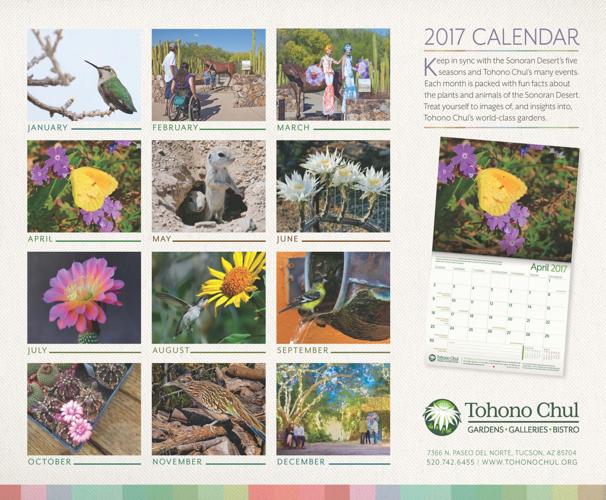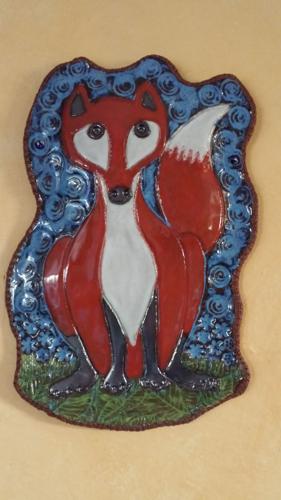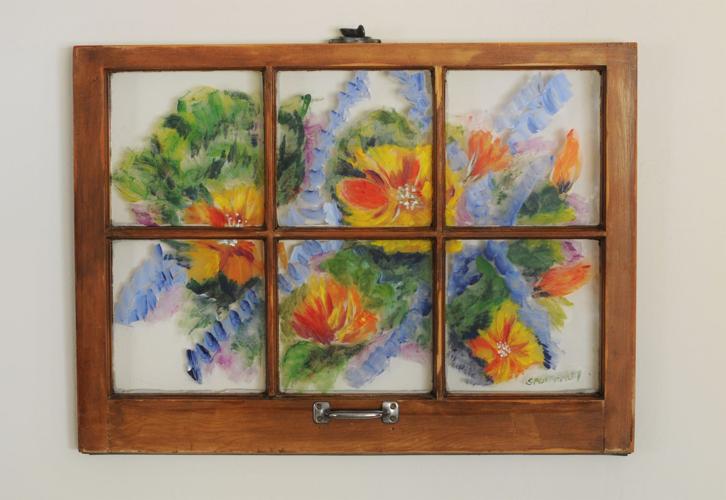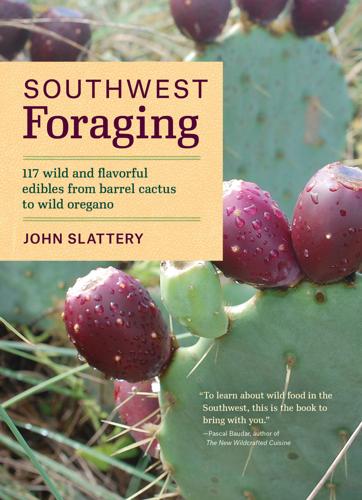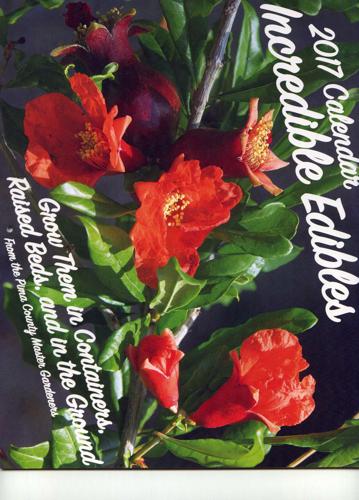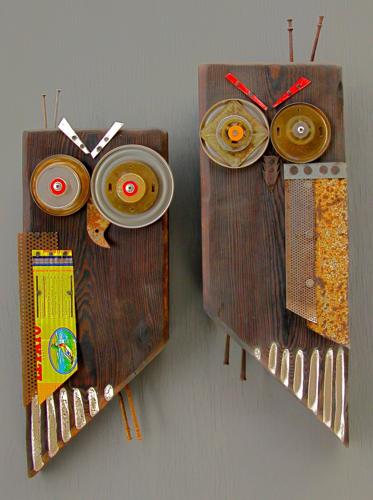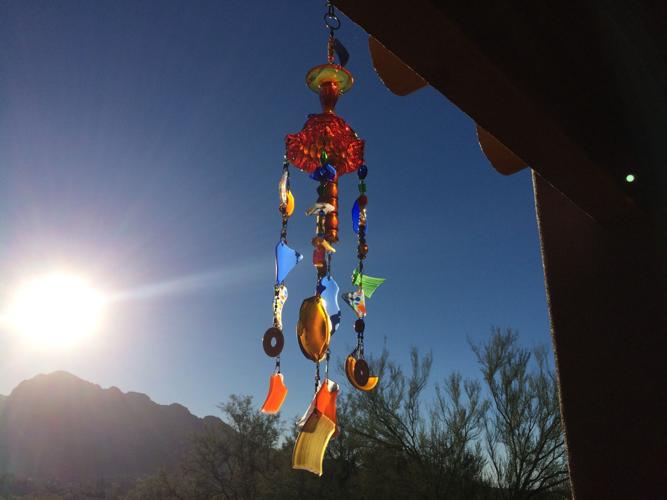Give the gardener on your holiday gift list a little bit of Tucson in and for the landscape.
Here are details of locally created items for outdoor living and where in Tucson you can find them. Some also can be ordered online.
Tohono Chul Park’s 2017 Calendar, $10. Find inspiration from the photos of the northwest Tucson botanical grounds that grace this wall calendar. The images were taken by Tucson professional photographers Andrew Brown and Robin Stancliff, park graphic designer Austen Arnould and park volunteer Larry J. Parkhurst, a photography hobbyist.
The calendar also contains dates of annual events at Tohono Chul Park, including concert series, plant and art sales, free admission days and special events such as the Sonoran Spring Gala and Holiday Nights.
It’s available at the park’s gift shops.
“Incredible Edibles” 2017 Calendar, $10. Learn how to grow edibles from this wall calendar by the Pima County master gardeners. It focuses on the monthly needs of fruits and veggies in pots, raised beds and the ground.
Each page is full of information gleaned from University of Arizona research. The photos of the demonstration gardens at the Pima County Cooperative Extension were shot by master gardener Tony Knight.
Calendars are available at Harlow Gardens, various farmer’s markets and the extension office, 4210 N. Campbell Ave. Proceeds support the master gardener program that trains people to become gardening educators.
“Month-to-Month Gardening: Arizona, Nevada & New Mexico,” Quarto Publishing Group USA Inc., $24. Prolific Tucson garden writer Jacqueline Soule covers the planning, planting and caring for specific edibles and ornamentals for each month in her newest book.
She includes general gardening issues such as soil, composting and dealing with weather conditions.
It’s available at Tohono Chul Park, Native Seeds/SEARCH, Antigone Books and the Rillito Nursery & Garden Center, 6303 N. La Cholla Blvd.
“Southwest Foraging,” Timber Press, $25. Forager and herbalist John Slattery owns Desert Tortoise Botanicals. His newly released book shows how to find, gather, prepare and grow 117 edibles in the wild.
Some of the book’s advice also applies to native plants grown around your house.
“The first step for most people into foraging is learning to use what’s already in their yard,” Slattery says.
In his book, Slattery suggests using your landscape to practice identifying useful plants that you can then find in the wild.
The book’s Southwest definition covers Arizona, New Mexico, Oklahoma, Texas, southern Utah and southern Nevada.
Slattery will hold a book signing on Saturday, Dec. 10, 11 a.m.-12:30 p.m., at Alfonso Gourmet Olive Oils & Balsamics in St. Philip’s Plaza, 4320 N. Campbell Ave. The book also is available at Antigone Books and Native Seeds/SEARCH.
Window paintings, $225-$325. Sandra Montgomery combines her love of gardening and painting in her works, which are mostly of Arizona scenes and garden flowers in permanent acrylic on framed window glass.
“I have a studio of old sash windows I constantly collect for my canvas,” she says.
The paintings can be hung indoors or outdoors under a covered porch or patio.
They are available at Art House Centro in Old Town Artisans, 186 N. Meyer Ave.; Sweet Poppy Boutique, 19 Tubac Road in Tubac; and Harlow Gardens. Montgomery also sells them at art festivals and the Rincon Farmers Market.
Clay hangings, $25-$125. Midtown artist Susan Stokes likes to play with color and texture in her artwork of plants and animals.
She’s sold her pieces, which can be hung in a patio, for 12 years through her company, Horseplay Clay.
Her works are available at Harlow Gardens. She also can be found at art festivals.
Wind chimes, $65-$150. Kimber DeLorenzo walks the washes of Tucson to find broken glass for her colorful wind chimes. She also checks out thrift shops and estate sales for dishware.
While some pieces play with color, shape and texture, DeLorenzo also creates time capsules of sorts. “I like to keep specific periods of glass together, the 1960s, 1940s,” says DeLorenzo, who owns Pieces of the Past.
The chimes are available at Tohono Chul Park and Tucson Botanical Gardens, 2150 N. Alvernon Way.
Olla spikes, $13. You may have heard about olla balls, unglazed clay orbs that irrigate plants using less water than other irrigation methods.
Tucson company Cutting Edge Ceramics has come out with an olla spike specifically for potted plants. The spike is inserted into the dirt. You fill the container through an opening that’s not covered by soil.
Water seeps through the clay, attracting roots that then grow toward the water source. In essence, the water goes directly to the roots.
In traditional irrigation, water has to make its way through the soil first and eventually to the roots.
Olla spikes are available at EcoGro, 657 W. St. Mary’s Road.
Seed packets, $3-$6. Native Seeds/SEARCH, headquartered in Tucson, packages seeds collected from its conservation farm in Patagonia, among other local sources.
Most of the seeds are of native plants; others are proven to grow well in the Tucson environment.
The seeds are not genetically modified. While the farm is not USDA certified as organic, the plants are grown using organic-growing practices. All the seeds are open-pollinated varieties.
Retail associate Laura Neff says the best veggies to plant from seed right now include I’itoi bunch onion, Magdalena acelgas (a type of chard), San Luis pea and Magdalena cilantro.
The organization also sells wildflower seed mixes ($2) from local sources.
Seeds can be purchased at the organization’s retail store.
Bee habitats, average price is $130. Tucson artist and landscape designer Greg Corman turns found objects into artful habitats.
In his owls series, the bodies are made of scrap lumber or mesquite. “I spend a lot of time in scrap metal places, firewood yards and back alleys looking for materials,” Corman says on his website. “The hunt is half the fun.”
Corman drills holes on the sides of the wood for solitary native bees to create nests.
His owls and other works are available at Harlow Gardens.


